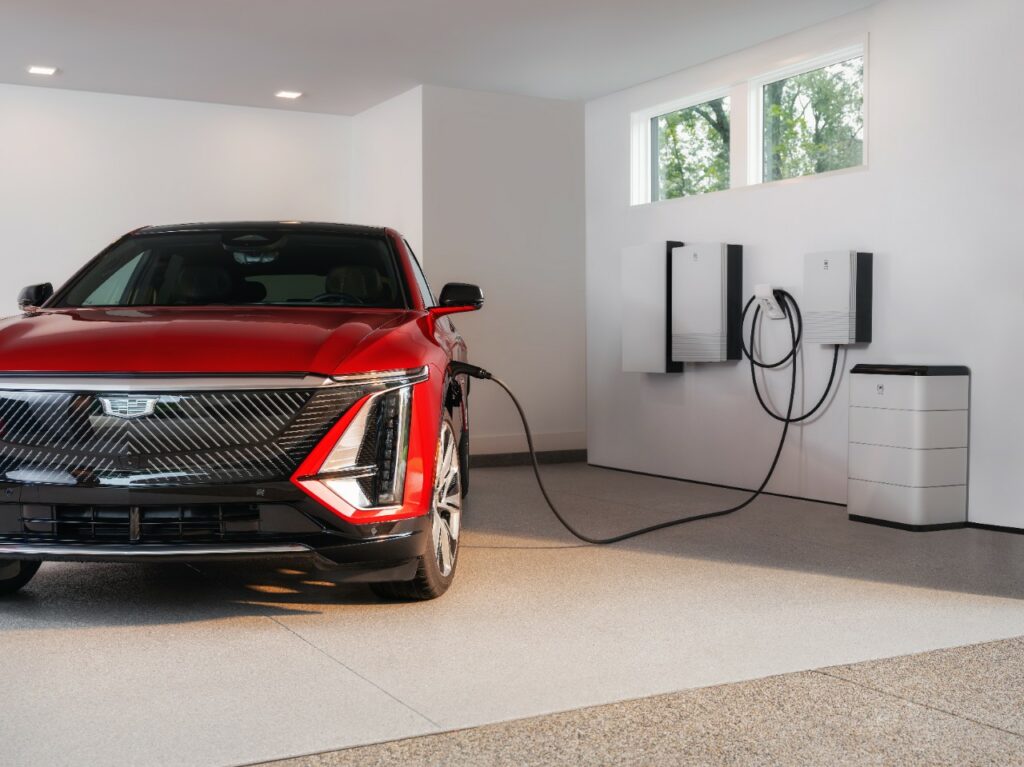
In a bold move to compete in the home energy market, General Motors (GM) has unveiled the GM Energy PowerBank, a flexible and modular energy storage system designed to meet the needs of homeowners, electric vehicle (EV) owners, and solar energy users alike.
With Tesla’s Powerwall dominating the space for years, GM’s PowerBank aims to carve out a significant share by offering a versatile, scalable solution with some powerful features.
Powering Homes and EVs
At its core, the PowerBank is all about flexibility. This system offers two battery options: a 10.6 kWh unit and a larger 17.7 kWh version. Homeowners can even combine two of the 17.7 kWh PowerBanks, achieving 35.4 kWh of storage—enough to power the average American home for up to 20 hours during a blackout. But it doesn’t stop there.
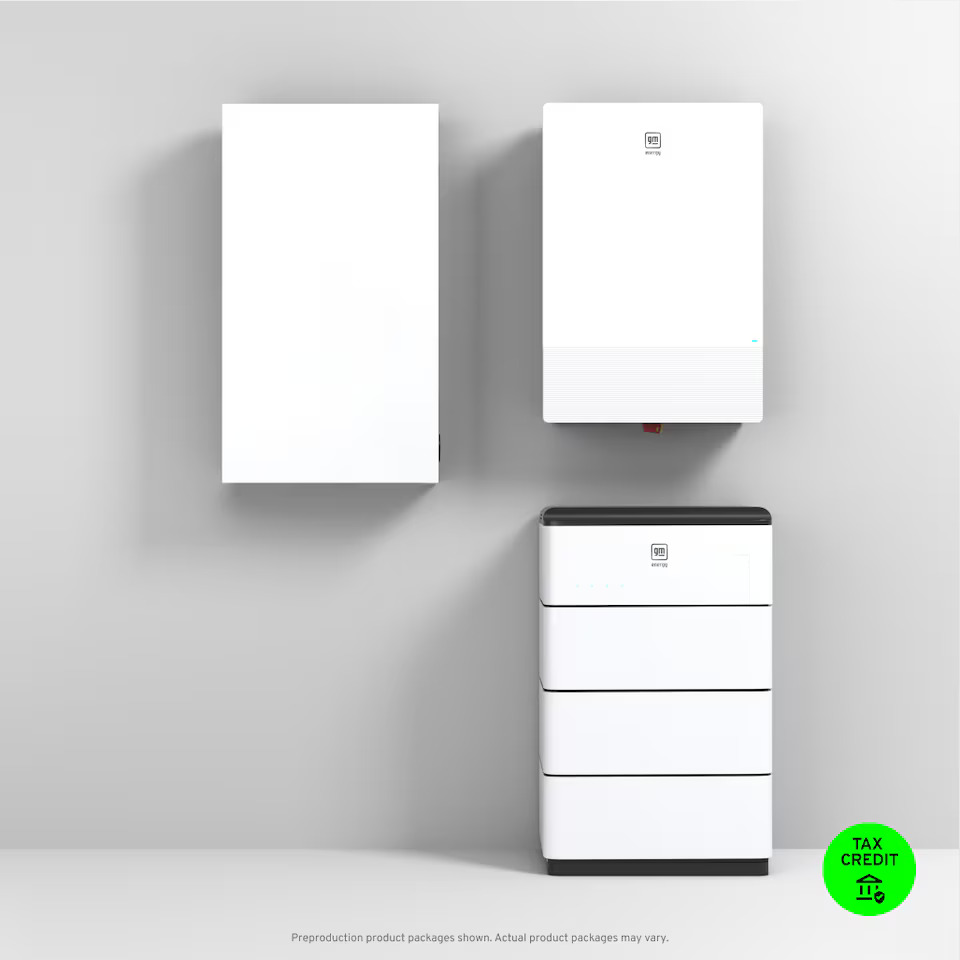
GM’s PowerBank integrates seamlessly with GM electric vehicles, allowing EV owners to use their cars as an additional power source for their home through bidirectional charging. This vehicle-to-home (V2H) capability provides added peace of mind during power outages.
And for those already harnessing the power of the sun? The PowerBank can store excess solar energy, helping reduce reliance on the grid and offsetting high electricity costs during peak demand times.
Taking on Tesla
Of course, no new energy solution comes without a comparison to Tesla’s well-established Powerwall. Tesla’s Powerwall 3 offers 13.5 kWh of energy storage, which slots it between GM’s two PowerBank options in terms of capacity. Where GM aims to gain an edge is in the modularity and integration of its products.
According to GM Vice President Wade Sheffer, “The flexibility of our energy management tools, combined with one of the market’s largest lineups of vehicle-to-home-capable EVs, gives our customers more control over their energy use.”
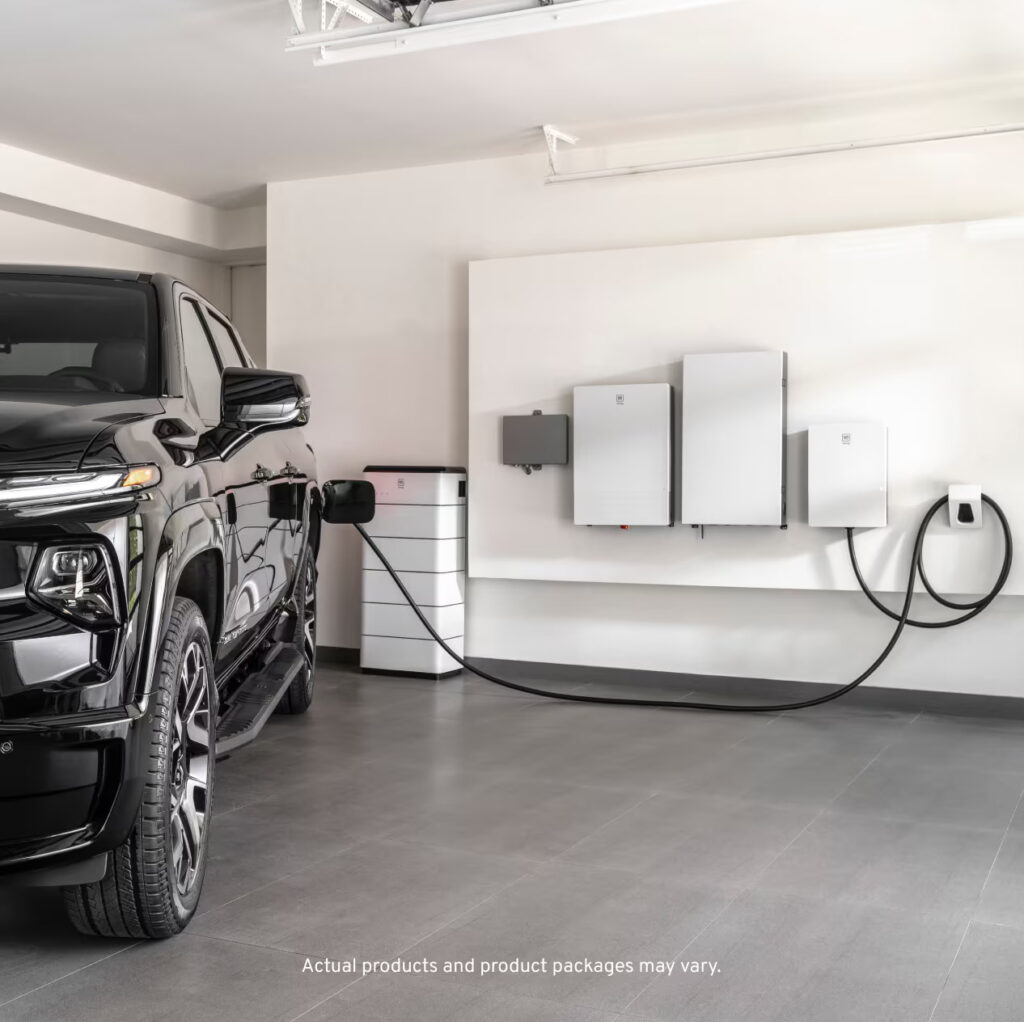
While Tesla (TSLA) remains a tough competitor with its single-system simplicity, GM offers more customizable solutions for homes with varying energy needs and existing solar installations.
GM’s PowerBank also integrates with its other energy products like the PowerShift charger and V2H Enablement kit, making it a comprehensive energy management solution for both homes and vehicles.
Options for Every Household
GM Energy offers the PowerBank as part of two bundles. The GM Energy Storage Bundle starts at $10,999 and includes a 10.6 kWh battery, inverter, and hub. For those wanting more firepower, the GM Energy Home System Bundle comes with the larger 17.7 kWh battery, as well as a bi-directional EV charger capable of providing up to 19.2 kW of power, all for $12,700.
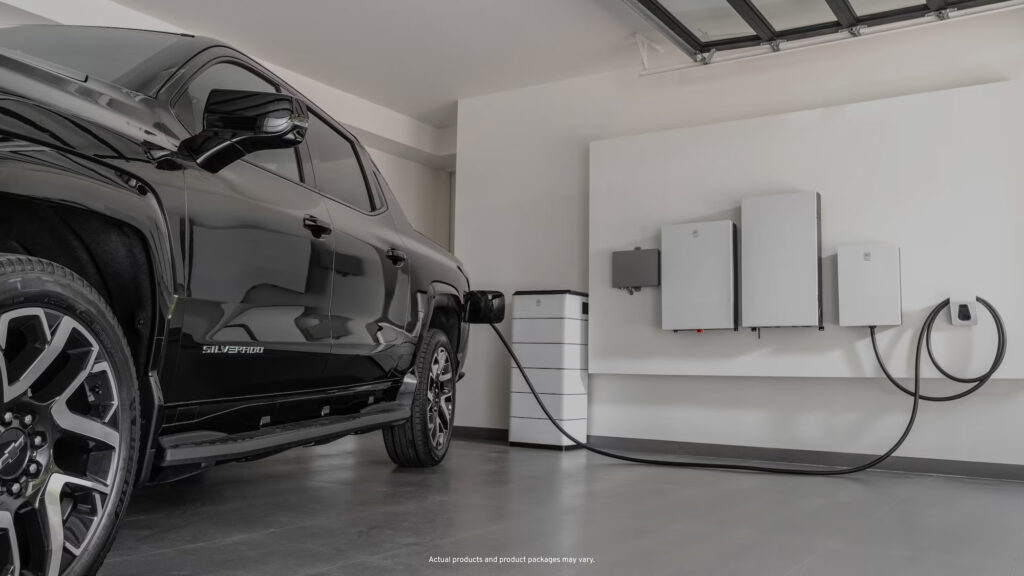
Both options qualify for the 30% federal tax credit, making them competitive with Tesla’s offerings, which start at $9,300 but offer less modularity.
Looking to the Future
GM’s leap into the energy space with the PowerBank is part of its broader vision of a clean energy ecosystem. With the introduction of V2H and plans for vehicle-to-grid (V2G) capabilities by 2026, GM is positioning itself as more than just an automaker—it’s becoming an energy provider.
The company also announced that all of its 2026 model-year vehicles will feature V2H technology, allowing even more customers to take advantage of these energy management tools.
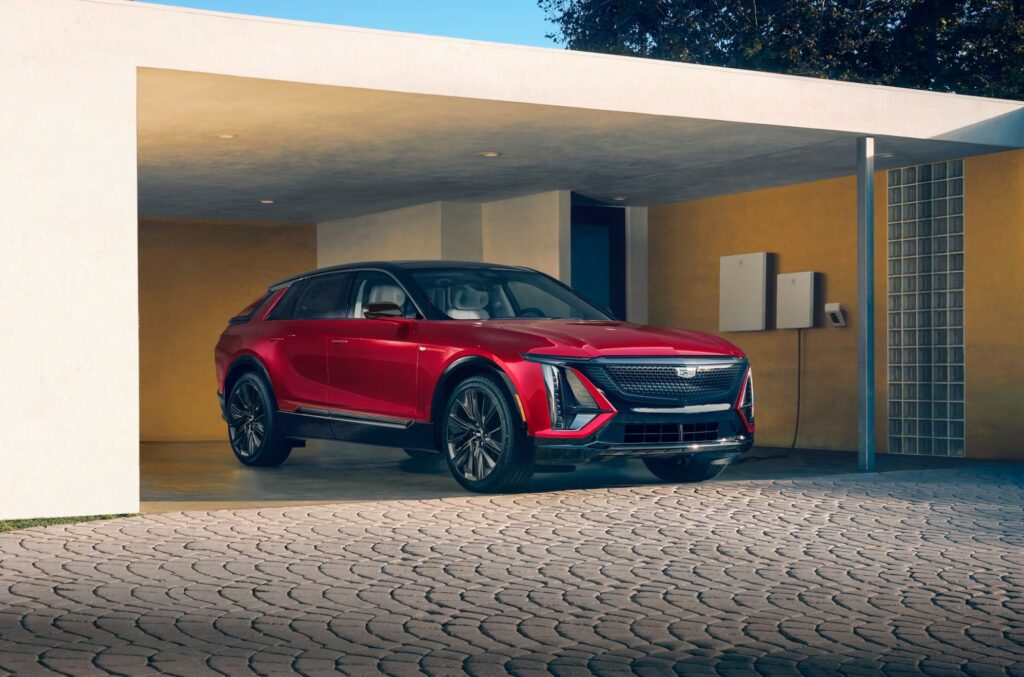
GM isn’t alone in this push. Other automakers like Nissan (7201.T), BMW (BMW.DE), and Ford (F) have partnered to develop V2G software, and Tesla is rumored to introduce similar tech in 2025.
However, GM’s early commitment to both V2H and V2G gives it a head start in offering complete energy solutions that go beyond cars.
Charge Complete
With its PowerBank system, GM Energy is stepping up to challenge Tesla in the home energy market. Offering flexible storage options, seamless solar integration, and vehicle-to-home capabilities, the PowerBank could be the key to giving homeowners more control over their energy use, while also lowering their reliance on the grid.
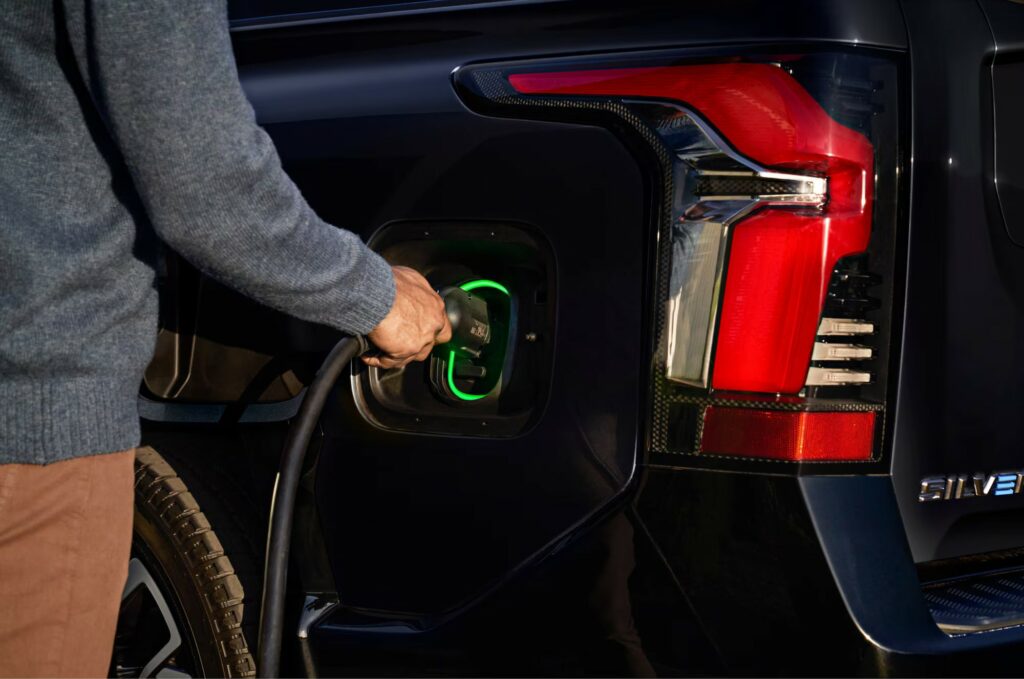
As energy savings and sustainability continue to take center stage, GM’s PowerBank might just be the next big thing in home energy management.




